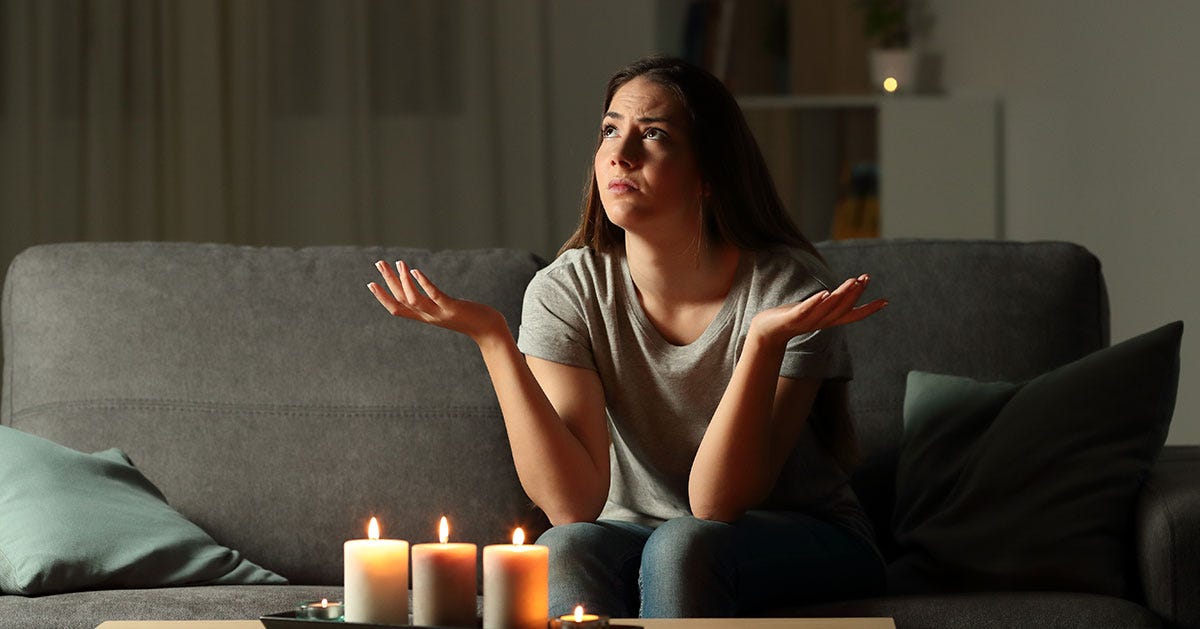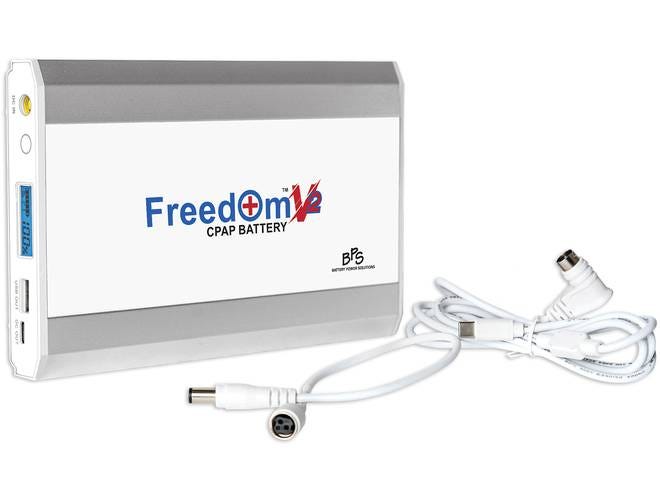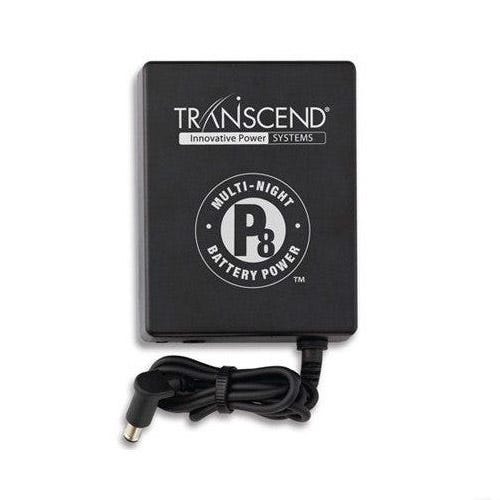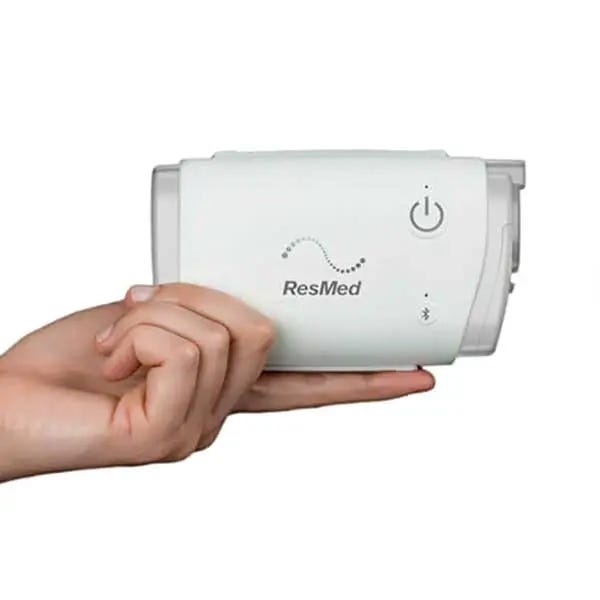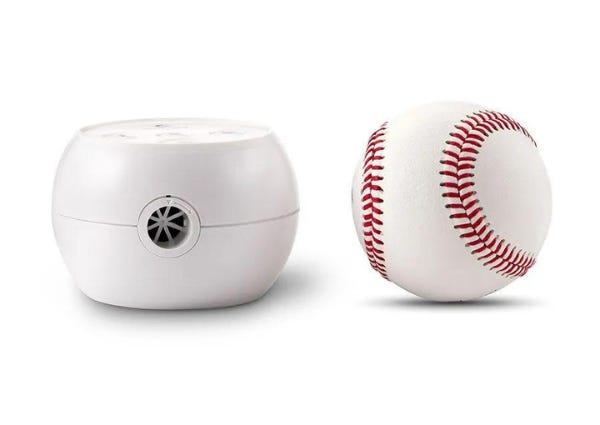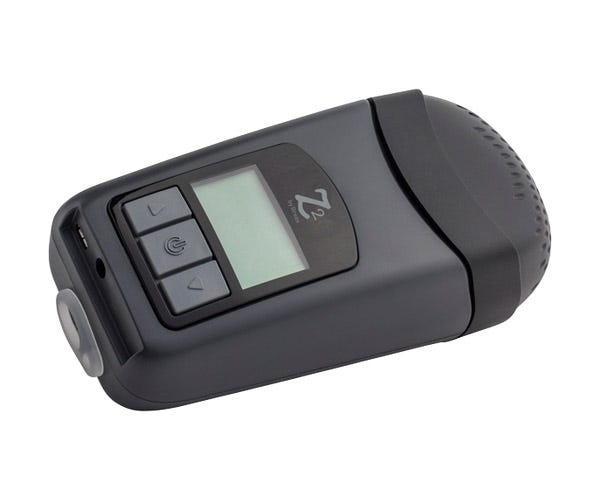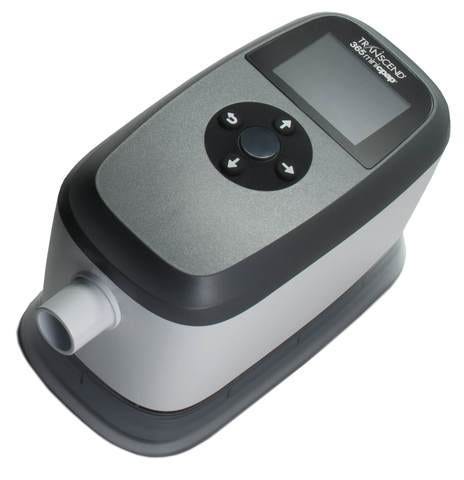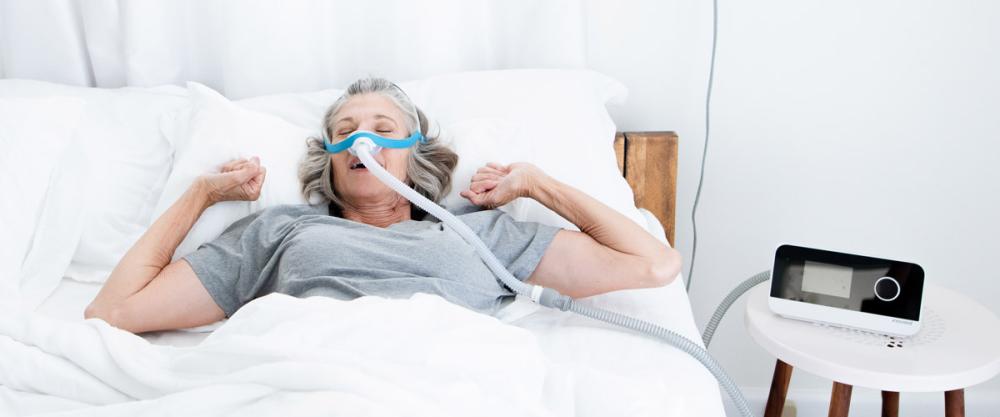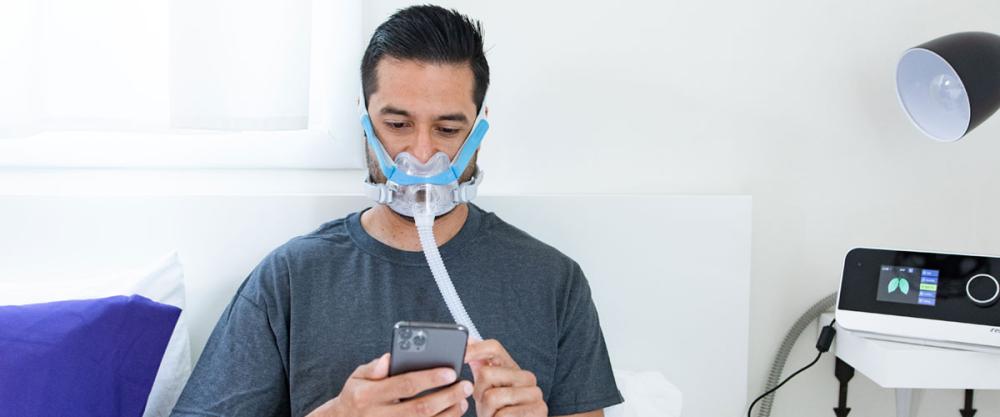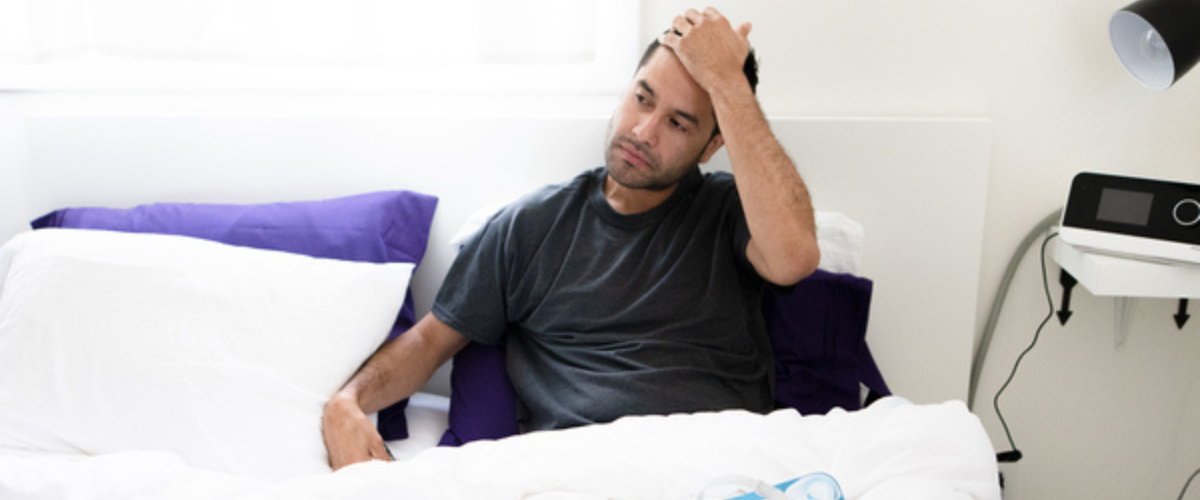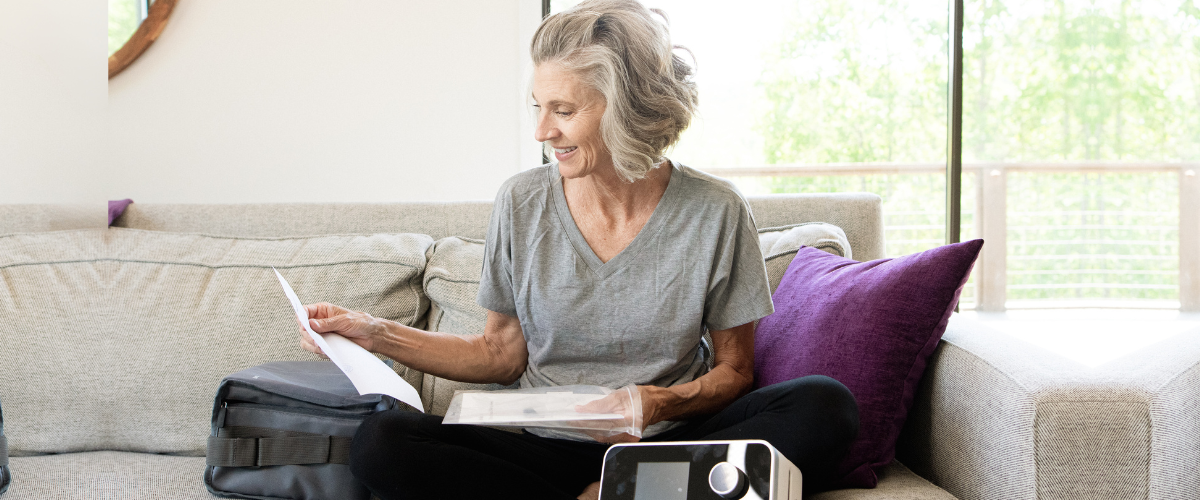Thunderstorms roll in, blizzards blow, wind knocks powerlines down. Power outages are a part of life. However, if you don’t have some kind of backup power supply, you could be stuck without your CPAP machine.
Or if you’re planning an RV or camping trip you might be tempted to simply leave your CPAP at home.
But your doctor will advise you– with good reason– to never skip a night of therapy. Skipping even a single night of CPAP treatment can affect your body’s ability to regulate blood pressure, and lead to increased sleepiness and fatigue– making activities such as hiking or driving more dangerous.
Fortunately, there are so many affordable power options, there’s no reason to skip the CPAP! Below, we’ll answer some of the most common questions about CPAP battery power and other alternative power sources.
What Size Battery Do I Need For My CPAP?
Most CPAP machines can be powered from a 12v or 24v CPAP battery pack, and require between 30-90 watts of power.
This wide variation in power use is because your machine type (i.e. CPAP, APAP, or BiPAP) and pressure settings can change your machine’s needs. Advanced features, like autoramp or leak detection, also tend to require more power. Your power needs may also change depending on the accessories that you use, such as a humidifier.
While it’s possible to calculate the exact output required, most CPAP users will find it easier to simply select a CPAP battery that’s indicated specifically for their machine. Your personal Sleep Specialist can help you find the right battery for you!
Can I Use a CPAP Battery Like a Battery Backup?
Some CPAP batteries can be used like an uninterruptible power supply (UPS)!
Usually your CPAP machine can either be plugged in to a wall outlet or to a battery. If your power goes out, you would need to manually change your power supply.
However, some CPAP battery packs– like the Freedom V2 CPAP battery– can be used at the same time as AC power. The battery-bypass feature can sense the loss of power and automatically switch to the built-in lithium ion battery.
In a pinch, the V2 and other similar units can be used to power other electronic devices, such as your cellphone or tablet. Keep in mind, however, that this will reduce the run time of the battery.
Can I Use My CPAP Battery On an Airplane?
While lithium ion batteries aren’t allowed in checked baggage, your CPAP battery will usually be allowed with you in your carry-on bag. In fact, the TSA recommends it!
Your CPAP machine, on the other hand, is classified as medical equipment so airlines should allow this without counting it as a carry-on item.
It’s always a good idea to call your airline several weeks before your flight to confirm their policies and their approval of your specific battery. It’s also a good idea to keep a note from your doctor stating that your CPAP is medically necessary, as well as a copy of your CPAP machine’s FAA compliance notice, just to be safe.
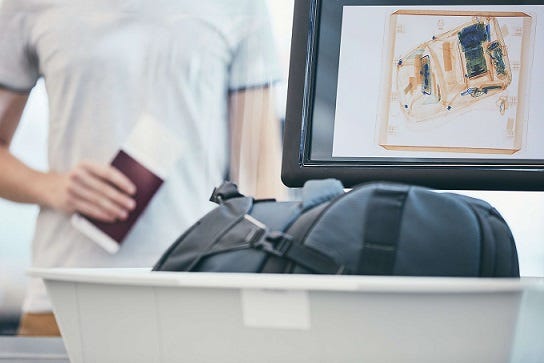

Will My Insurance Cover a CPAP Battery?
Most insurance providers won’t cover a CPAP battery, because they don’t consider it necessary for CPAP therapy. But if you’ve ever had to skip a night of CPAP, you’ll know that an alternate power supply can be a lifesaver.
That’s why we offer low prices on a wide range of CPAP battery and adapter options!
Ways to Use Your CPAP Without Power
A CPAP battery backup can provide up to two nights of sleep apnea therapy on a single charge so you can rest peacefully without power. A CPAP battery pack is an essential accessory to make your home CPAP become portable and are great to have in the event of an emergency. If you lose power or need your CPAP for camping a battery will keep your machine running! Many options are lightweight and compact, making them easy to pack or store until you need them. Just make sure that the CPAP battery you choose is compatible with your device.
1. Use A CPAP Battery
A few of the best CPAP battery options include:
The Freedom V2 CPAP Battery: This CPAP battery works with most devices if you also purchase their adaptor and can provide between 1 to 3 nights of power on a single charge. The LCD screen shows how much power is left and it includes a USB port, so you can use it to charge other electronics such as cellphones.
The Transcend P8 Battery: This battery is about the size of a deck of cards, and will power Transcend devices for up to 14 hours! It’s perfect for fitting in your pocket and taking anywhere for a full night of power. If you run out, it can be recharged with the optional solar panel and can be charged while connected to your CPAP machine.
2. Consider A CPAP Adaptor
Sometimes you might have a power source such as your car, a generator, battery pack, and more that can be used to charge your CPAP machine. These options are great when you don’t have a physical plug to use. CPAP adaptor cords are often lighter and easier to pack than batteries, making them a great choice for camping. Plus, you don’t have to remember to charge them. Again, before making a purchase, make sure the adaptor you choose is compatible with your CPAP!
The ResMed Air10 DC/DC Converter: You can take your ResMed unit with you on a boat, in the car, or any place with DC power capability. Perfect for use at home or when there is a power outage. It's compatible with the AirSense 10 and Air
The Respironics 12 Volt DC Battery Cable Adaptor: This 12 Volt DC battery cable adaptor will adapt to your DC power cord to create a connection to your Respironics CPAP machine. It’s a useful alternative to your cigarette lighter and can be used as a backup power source for other electronics.
3. Invest In A Travel CPAP
There are smaller, battery powered CPAP machines that are easy to take anywhere. These portable CPAPs incorporate all of the innovative features of larger devices, only at a fraction of the size. By weighing less than a pound and being FAA approved, they’re easy to travel with and can be used on planes so you can receive great rest away from home, even while traveling. They’re great to take on trips and to have available as a backup option.
The Best Travel CPAPs include:
The AirMini Autoset Travel CPAP by ResMed: With many of the same comfort features as the AirSense, the AirMini device can easily fit in the palm of your hand and is crafted to be dependable and portable for your convenience.
The Transcend Micro Auto Travel CPAP Machine: the smallest and lightest CPAP on the market currently, the Transcend doesn't have as many features as a full size machine, but it's a solid option for a travel or backup device.
Z2 Travel CPAP: It will easily fit in any pack and the power shell battery provides 8 hours of use. This option has automatic altitude adjustment and an auto ramp feature to provide outstanding comfort away from home.
The Transcend Mini: This travel CPAP runs for 14 to 16 hours on a single charge and only weighs 15oz! It’s the ideal option for travelers looking for a lightweight, advanced option. It operates at a whisper with an auto ramp feature to help you and your partner sleep peacefully away from home.

